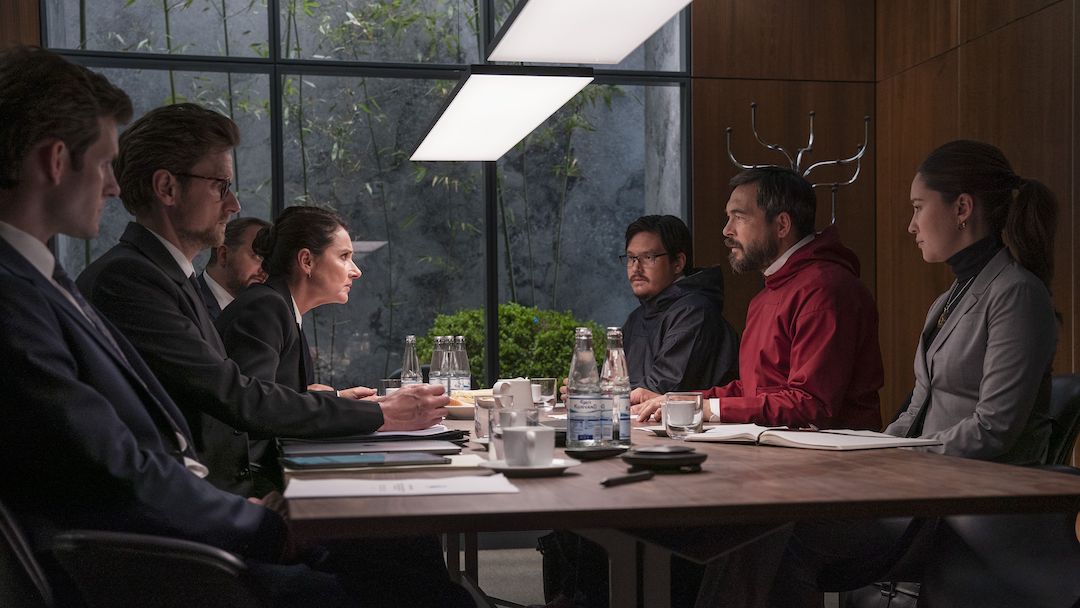
Fans of Borgen, an internationally acclaimed Danish TV series, will know that much of its appeal lies in its believability. When the series premiered in 2010, Danish lawmakers described it as an accurate, if necessarily dramatised, depiction of business at Christiansborg, the house of the Danish legislature. (The series’ title is taken from the term insiders use when referring to the building and what happens there.) Domestic viewers will tell you that it was often difficult to tell when an episode ended and the news broadcast that followed began.
So, when the fourth season of Borgen gets underway on Sunday in Denmark and later this year in the rest of the world on Netflix, a US-based entertainment service, it is a good bet that the creators will have made due on their promise to come up with something “up-to-date” and “relevant”. The series’ trailer reveals what their premise is: “They’ve discovered in oil in Greenland. That could turn into a huge problem,” the fictional foreign minister, who is the main character, says. The scenes that follow suggest that it does indeed cause trouble internationally (the trailer hints at a foreign invasion of Greenland that causes divisions between Denmark and its allies), domestically and in relations between Copenhagen and Nuuk.
Borgen is not the first dramatised account of current events in the region. In 2020, Thin Ice, an Icelandic-Swedish production combined the Arctic Council with the highjacking of an oil-exploration vessel in Greenlandic waters. Borgen is just as much a work of fiction, but real-world events are unfolding in such as way as to make its plot seem plausible, and not just because Russia appears to be revving up for an invasion of Ukraine.

To be sure, Greenland is not at risk of being invaded by Russia or anyone, for that matter. But it is a big country, and Denmark has a small military, and its capacity to keep foreign forces out is regularly called into question. America’s permanent presence in Greenland serves as something of a deterrent, as does Nato’s obligation to come to the rescue in the event of an attack, but Copenhagen is looking to do more on its own by improving satellite coverage and setting up a volunteer force modelled on the units Canada uses in its North. Denmark would still have still have plenty of holes in its surveillance capacity, but the thinking is that as long as the bad guys know they risk be seen trying to come ashore, they won’t even try.
Another idea based on the same philosophy has been put forward by Lieutenant Commander Johannes Riber, of Forsvarsakademiet, the Danish war college. He recommends buying a single, modern, long-range submarine and have it patrol Greenland’s coasts. “We can’t be present in the entirety of Greenland’s enormous coastal waters at all times,” he wrote in the most recent edition of Ræson, a foreign-policy magazine. “But if everyone knows that the kingdom has a submarine, they will adapt their behaviour accordingly.”
Though oil is an unlikely source of conflict between Copenhagen and Nuuk (Greenland suspended off-shore oil exploration in 2021), the idea that it could have been is not far-fetched. Greenland has control over its natural resources, and it sees them as a way to bankroll its independence, but Denmark has stepped in in the past to make sure that does not export dangerous material to dangerous countries. Similarly, Danish meddling (at America’s behest) prevented Chinese firms from investing in infrastructure that could be used by that country’s military. In the age of global warming, Danish lawmakers might consider exporting oil equally unpalatable.
This time around, it seems the appeal of Borgen will lie not in whether it is an accurate depiction of how things are as much as how they could they be.
Kevin McGwin, PolarJournal
More about this issue





